#How does technology affect marketing
Explore tagged Tumblr posts
Text
Smartphone cameras are NOT getting worse. (See below for phone photography tips)
I've now seen 3 pro photographers reviewing the iPhone 16 and complaining the cameras are "worse" and blaming Apple for not including revolutionary new camera technology.



And I suppose this is partly Apple's fault. Their marketing and hype machine always goes overboard. But also, that's just how marketing works. Samsung has a "200 megapixel" sensor and Sony has a "Zeiss" lens. And I think it is unrealistic to expect smartphone companies to say "This product has entered the iterative phase and each new model will only be marginally improved over the last one."
Smartphones (from any brand) have become an appliance. You don't buy a new model of microwave every year. And you don't expect every new model of microwave to have new revolutionary technology. And that is pretty much the expectation you should have with most computer hardware from here on out.
And in some ways, that is a good thing. That means the design of the phone has pretty much been perfected and it will last you a long time if you take care of it. You will not be left behind and your phone will be able to handle any new software for most of its lifespan.
So, is Apple getting lazy or is there a reason their hardware is stagnating?
It seems that neither money nor marketing can change the laws of physics.
They cannot make transistors much smaller. Phones and computers are about as fast as current hardware designs can make them (unless there is a shocking scientific breakthrough). From here on out, heavy compute tasks that are beyond your phone or computer will be done in the cloud on giant computer clusters. Thankfully computers and phones seem to be plenty fast for the majority of tasks we ask of them.
I remember Katrina telling me her new computer didn't seem any faster. And I explained the computing tasks she does regularly were not really affected by the increased power and speed of her new computer. If something took 0.1 seconds before and now it takes 0.05 seconds, that is twice as fast. An increase in speed that looks fantastic in advertisements. But it is hard for our brains to perceive. She just didn't do anything on her computer that took it long enough for her to notice. But having a faster and more powerful computer/phone will increase its lifespan and resale value, so it is still prudent to get the best things you can afford at time of purchase.
And I'm afraid smartphone cameras are hitting their own hardware limitations. They can't make the sensors much larger to get better depth of field and low light performance. And cramming in more megapixels doesn't actually add much more detail, if any.
It's physics.
Again.
You cannot get any more performance out of a small plastic lens. Why do you think pro photographers haul around 10 pound lenses still?
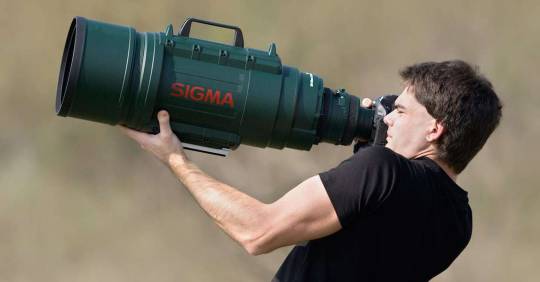
There is a formula for detail that never seems to be explained in any camera marketing.
Here is the simplified version...
Detail = Sensor x Lens
Let's say 1 is perfection. You have a sensor that performs at 0.5 and a lens that performs at 0.2.
The total detail will be 0.1.
But in the new model you increase the performance of the sensor to 0.8. WOW! That's so close to 1!
The total detail will be... 0.16.
Now let's imagine we've discovered a magic, physics-defying tiny plastic lens that performs at 0.8 as well.
The total detail jumps to 0.64!
But we all get sucked into a wormhole because we violated the laws of the universe.
Even if you were to design a near perfect (perfect is impossible) sensor that scores 0.99.
Without that magic plastic lens... 0.198
This is why I put Samsung's "200 megapixel" sensors in quotes. Because when paired with the same tiny plastic lens, there isn't much improvement. And that's why a 12 megapixel DSLR from 10 years ago with a giant honking lens can still capture more detail.
Most of the quality from smartphone cameras comes from the computational software processing. Phones actually take many photos at once and combine them to get you a decent image.

While that is still improving a little bit each generation, those improvements are stagnating as well. Until image processing can do a better job of inventing more detail realistically, smartphones are going to have to obey the laws of physics.
So... why are photographers saying the iPhone cameras are worse?
First, the ultra wide angle lens looks softer in low light.
And if you zoom between 1x and 5x, the images look less detailed.
But neither of those things make the cameras *worse*. In fact, the cameras are better for the most part. It's just that Apple decided to compromise on one aspect to improve another. Probably due to market research telling them most people prioritize certain things over others when taking photos.
They increased the resolution of the ultra wide angle sensor to match the detail of the main sensor, but that seems to have lowered the low light performance of the ultra wide. So in good light, you will see an improvement in sharpness. But they could not increase the sensor size to compensate and smaller pixels can have trouble with dim conditions. They probably discovered that people mostly use that lens in good light and they would appreciate the bump in detail more.
But pro photographers often photograph in more challenging lighting conditions because you can capture a more artistic shot. I don't think I could have gotten this shot on a smartphone.
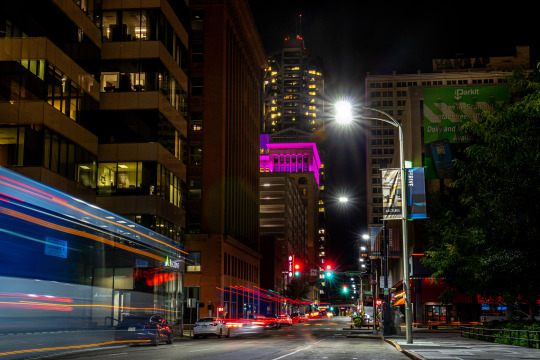
But photo normies are just taking pics of their kids doing weird kid shit.
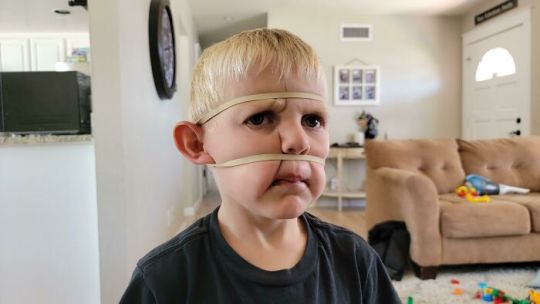
They aren't really trying to push the limits of their ultra wide angle lenses.
And they increased the zoom of the telephoto lens to 5x from 3x because most people never used the 3x. So images at 5x look great now, but unfortunately if you use anything between 1x and 5x, your image will be *digitally* zoomed. Which is never as good as optical zoom. They basically crop the photo, zoom in, and add sharpening.
So they prioritized people having longer reach and more zoom at the expense of that middle zoom range. Every camera system makes tradeoffs and compromises.
And I hate that I always feel like I am defending Apple, because they do have misleading and dishonest marketing regarding a lot of aspects of their tech. But hating on Apple gets more clicks so content creators also make misleading and dishonest claims.
And so we are just surrounded in a circle of hyperbole from all sides.
Now, if you know these limitations, you can change your approach to photographing stuff to keep them from being an issue. You can reap the benefits without dealing with the new compromises.
Here are some tips to help owners of the new iPhone, but also everyone else too.
Smartphone Photography Tips
Whenever possible, try to use the main 1x camera at only 1x zoom. This has the largest sensor with the most detail and works best in the lowest light. Only use the ultra wide or telephoto if you cannot get the photo otherwise. If you aren't sure you have enough light for ultra wide, take the photo, and then as a safety, take two photos with the main camera side by side and stitch them later with a pano app.
"Zoom with your feet" and don't use "in-between" zooms. Let's say your lenses do 0.5x, 1x, and 5x zoom. Even though you have the option to use other zooms, like 2x or 3x, that is going to compromise your picture quality. It is essentially going to crop your photo and enlarge it, which causes a loss of detail. If fact, if you use 4.5x instead of 5x, your picture will probably look like trash. You are always going to get better results if you can move closer or step back so that you are using the native focal length of your chosen lens. For example, let's say you are taking a photo and you judge the best framing to be at 4x. But you still have 10 feet of space behind you. If you back up and then zoom in to 5x, the phone will switch to that lens and you will get a much clearer picture.
Rule of thumb...
1 to 3x... try to move closer.
4 to 5x... try to move back.
If you hit a wall and end up at 4.5x, you might see if you have a panorama mode and try that instead. Switch to your 5x and do the pano. Or you can take two photos and then stitch them together with software later on. (Stitching panos with an app later will give better quality than pano mode, especially in low light.)
Low light needs stability. Get some sort of stabilizing device for low light photos. Either a phone case that lets you stand up the phone on its own or a mini tripod.
This thing folds to the size of a credit card.

Your phone will detect when it is stable and not being handheld. It will then automatically extend its shutter speed allowing it to drink in more light and give you a better picture.
Tripods are photography magic and will improve your low light photos quite a bit. Motion blur of moving subjects can still be an issue, but photos of a cityscape or landscape will look great.
For selfies, shoot a little bit wide and then crop in. This goes a little contrary to my earlier advice saying cropping lowers detail, but this is specifically for shooting a face. The 0.5x and 1x lenses on smartphone cameras are fairly wide angle. This can cause unflattering proportions with human faces. Wide angle lenses exaggerate distance. Near things look very near and far things look very far. To a wide angle lens, the tip of your nose looks like it is super close but your ears seem like they are a mile away. And that's why you may look a bit "alien" in your selfies.
People's natural instinct is to "fill the frame" with a face. The outer edges of a wide angle lens are more distorted than the very center. So try to keep faces away from the edges of the frame.
And one other trick you can do for selfies and pictures of faces is step back a few feet. Sometimes this is hard, especially with selfies, as your arm is only so long... but if you can take your face photos from just a little bit farther back, you will almost entirely eliminate unflattering distortion. In some cases, just stretching out your arm as far as it will go is enough.
Then you just crop the image with the framing you originally wanted, and your facial proportions will look great.
An example...

Here the distortion is bad because I am not in the center and the lens is too close to my face. The lens thinks my nose is really close and my ears are in Canada.

But when the lens is farther back the edge distortion is less prevalent and my nose and ears (relative to the lens) seem roughly the same distance away. So my proportions look great, but I don't quite have the framing I want.
But with a little cropping...


For social media there is still plenty of resolution to crop in. Cropping isn't bad, it's just always better to use it as a last resort or in a special circumstance like this. I get roughly the same framing as in my wide angle shot, but I don't look like I'm behind a door's peephole trying to sell you the Good News.
I wish they made a "mini" selfie stick that only extended a foot or so. With the main camera that is usually all people need to undo any wide angle issues. I have one of those mini tripods and that works well, but there is no activation button so I have to do a timer. Mirrors work great to help you get some selfie distance.
In any case, all cameras have limitations and compromises. Clickbait titles saying something is WORSE THAN THE OLD ONE are frustrating and wrong.
And people upgrading phones every year are silly. All current name brand smartphones have promised at least 5 years of software updates. I think Google and Samsung are offering 7 years on some models. And Apple has always just let you use your phone until it literally will not work with new software. Which has worked out to 8 years in some cases (with a battery swap).
Phones are now appliances. For now, hardware will improve 10 to 15% from generation to generation until physics breaks. So if you want a 50% improvement, wait 5 years and you'll think your new phone is awesome. If you upgrade every year, it is going to be difficult to see the change.
I hope to be starting a little course on smartphone photography in the near future. All modern phones are capable of taking amazing pictures. And as long as you understand their limitations you can mitigate or avoid them. And that is what I plan to teach.
700 notes
·
View notes
Text
Northopalshore's
Union predictions & analysis



♀ This is just a short analytical post. I wanted to apply my knowledge onto my own chart to be used as an example of how to read your placements. I'll link my general guides under this post for you to refer to & try to interpret yours on your own as well. alt title;
(Deconstructing the natal union and how it affects the Union persona chart)
꒰ა ♡ ໒꒱ ‧Union in the natal chart
Are the general circumstances of meeting your spouse, the first contact where both start getting aquainted 1st hand with each other whether online or not.
My union asteroid is in Libra (°26 Taurus) in the 8th house. I'll likely meet my FS through some sort of service ( I'm likely the one providing said service). While I'm at home. You can look at my parents' example here.
I'll likely meet him online as everything points to meeting through some sort of research or study based (i.e involving technology or knowledge) service which could mean something related to the occult? Since I own an astrology (occult) blog. It could be related to me doing something new as well here. Perhaps finally offering paid services?
꒰ა ♡ ໒꒱ Union in the Union persona chart
Is your first face-to-face meeting or first date. The first time you both get together in real life or romantically.
In my Union persona chart, the sun (natal union) is in the 11th house, conjuncting Jupiter (°28 cancer) in Libra.
Neptune is in Aquarius (°14 Taurus) the 3rd house in retrograde which means talking online a lot. There may be some communication issues at first, finding it a bit difficult to navigate our conversations without seeing each other. Could be different languages too. Literally video calls & texts as the main source of communication.
Union in the Union persona chart is in Scorpio (°14 Taurus) in the 12th house. The first time I'll meet my FS face-to-face will be in a foreign country (involving distant travelling), likely at his house as a first date. It's going to be a private & intimate meeting which is slightly taboo or risky ( I mean who tf would fly over just to meet a stranger at their house??? I would appearantly.) Our dates may mostly be indoors or somewhere with less people around and there won't be anyone with us besides each other.
Ex 1: I have a friend who has her union in the union PC in Leo (°24 pisces ) in 12th house. The first time she met her fiance face to face was at his state (she had to fly to him to meet for the first time). They both met up at a public place & their dates were mostly somewhere with a lot of people & fun things to do i.e arcades, the cinema, the market, the beach & even malls.
Ex 2: Her union persona chart sun (natal union) is in Gemini (°17 Leo) in the 10 house. The MC is in an Aries (°13) degree. She first met him online while doing TikTok live (entertaining people but also putting herself out there).
The significance of asteroid Briede & Groom in the union persona chart;
it shows you what you and your spouse will be doing when you first met. What you're doing right to the point of when you meet them or heard or them.
My Groom is in the 4th house in the Union persona chart. It's in Aries (°6 Virgo) in retrograde. My FS will likely at be at home (or at his hometown ) when he first "meets" me (online), he could be looking for something that day (retrograde) or doing something that he normally does or have been pushing back from doing for a while. He could be searching for something related to himself (placements?).
My Briede is in the 10th house. It's in Virgo (°28 cancer). I'll likely be working on a passion project that is beneficial for my career or just my "job". I will be at home or a place of comfort, doing something I would usually do i.e tend to my blog. For me, it's just another day planning a post or something. Doing something I usually do, researching in the comfort of my own home.
Ex 1: My mom has Briede in the 8th house in Capricorn (°6 Virgo) & Groom in the 11th house in Taurus. She had just started working at my father's hometown as a banker when they first met. A coworker introduced her to a guy who took long-distance driving commissions (that was my dad!). He was working when he met her, & she was at a new town for work.
Ex 2: My friend (same friend from earlier) has Briede in her 8th house in Taurus (°4 cancer) & Groom in the 4th house in retrograde. It's in Sagittarius (°14 Taurus). Both of them were at home when they met. So for starters, she was bored because she had just finished her studies & was waiting for a call back from uni. She decided to try something new (TikTok live) for fun but she also received a lot of "gifts" and treated it as sort of a side hustle lmao. Her fiance wasn't an active watcher, but he had a friend who did & showed her account to him. He was immediately interested and asked his friend to contact her for him lmao. He is from a different state than her.
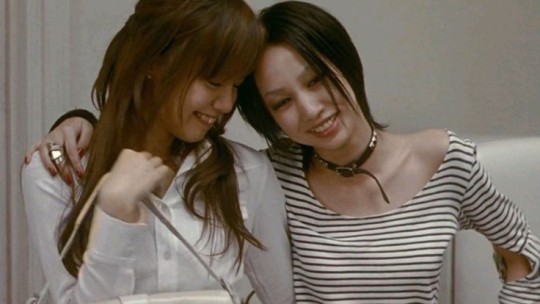
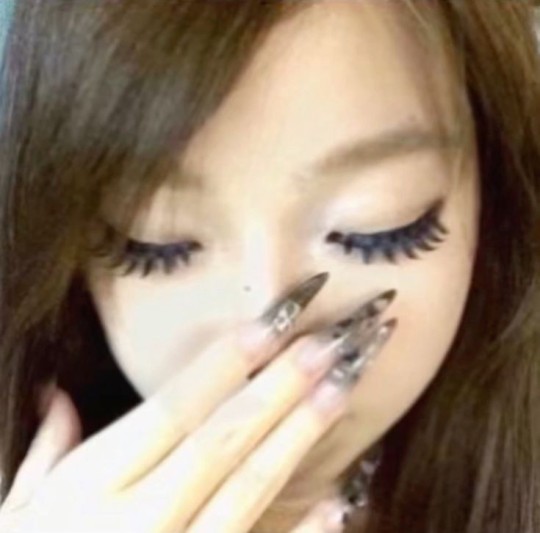

Theory & speculation
My prediction of how it's going to go down would be that my FS may be a regular or a passive reader on my blog. He may go through my archive to see what I have to offer ( intellectually). If he's anything like me, he can read both the intention & " reach" certain people have. So he'll likely be stalking the blog in a way. I can't tell when he'll find it but when he does, he will do a bit of his own "research" on it. Down a rabbit hole if you will. Either that or he'll have a friend say "yo check this out" then spiral from there.
It's also a prediction, since if my calculations are correct then I'll see it manifesting in the later half of 2025. Which makes sense when looking at my 2026 SRC, there will be a lot of travelling for me that year which could be related to seeing my FS & 2027 is when Jupiter enters my 7th house in virgo. I have a feeling this post will be brought up again in the future. Looking at my chart, the progression seems to go like this
2025 meeting FS> 2026 dating period/ possible proposal> 2027 proposal & or wedding. It's quite quick lmao, but I guess we'll see. Besides, it pretty much lines up with my natal boda in aries.
It may feel or look rushed to you, but it makes a lot of sense for me. Though , I myself am rather skeptical. Boda is also in the 2nd house with a Virgo (°18) degree, so it's not a "reckless" marriage either.
There's a lot more information I can dig, but I'll save it for another day.
Wait a minute... Don't tell me he'll find me through reading a stolen post about him (placements) from me on TikTok??? Omg.
˚₊‧꒰ა paid readings available ໒꒱ ‧₊˚

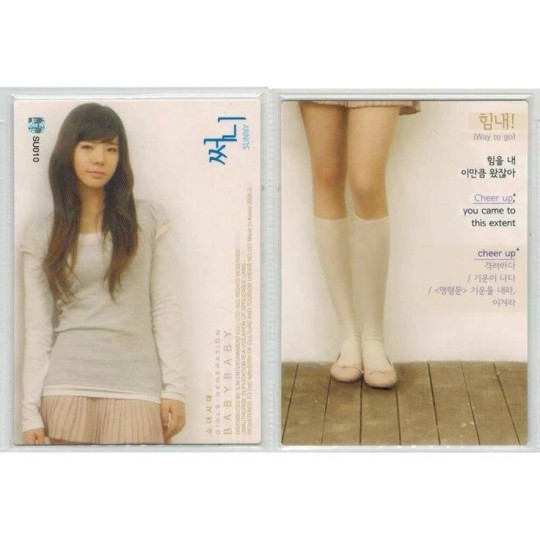
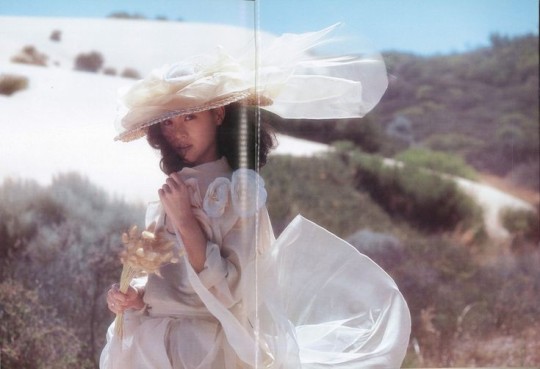
Links; My union Masterlist
@northapalshore
@northopalshore union persona chart 2024 all rights reserved. Disclaimer
#union persona chart matching groom persona chart#union persona chart guide#astrology notes#astrology observations#astrology blog#astro notes#astrology content#astro observations#astrology#astrology community#astrology ramblings#northopalshore#union#meeting future spouse astrology#meeting future spouse indicators astrology#meeting love interest in solar return chart indicators#meeting spouse#future spouse#future spouse astrology#love predictions#union in the natal chart#union in the union persona chart#union persona chart reading guide#union asteroid guide
239 notes
·
View notes
Note
Can you help me understand why the stock market isn't more fucked rn? Significant decline within the next year seems inevitable.
The obvious answer is that it's already priced in, but I don't understand how that can be with current s&p prices.
The reality is that the US economy just isn't that trade dependent - we are a huge country, the world's largest market monetarily, and most companies do things like services, technology, real estate, etc. Their stock price took a hit, but they aren't gonna collapse or anything from this.
While the stock market is a good proxy for the economy, it isn't a perfect or unbiased proxy - a lot of the things tariffs are going to hit don't show up "a lot" in the stock market. Grocery prices and day-to-day consumer goods are the bread-and-butter of everyday Americans, so raising tariffs is a huge tax increase on middle and lower class households - but the typical company in the S&P 500 isn't doing stuff in that market. So they are less affected.
Still, the other factor is that the market does not think the Trump Administration will go through with everything they have said. With good reason! They probably won't. Because they are insane, addle-brained cowards who can't take the market hit and have no coherent plan whatsoever for why they are doing what they doing beyond an aesthetic fetish for 50's nostalgia and a desperate need to invent fake revenue sources to justify their deficit-balooning budget resolution. They are gonna do a lot of dumb stuff! But I agree with the market that they won't do 100% of it. They will sign "trade deals" with countries like Japan that are admitting defeat with a coat of propaganda, or be bribed by this-or-that industry, and drop a bunch of the rates.
45 notes
·
View notes
Text
The Spectator . . .


The Spectator as he was dutifully named, is an illustrious character amongst the community. Not only does he appear to have his claws in every syndicate, main stream gang, and every Black Market trade in the world, but he also seems to know a little too much about how things function within the A.S.A.'s inner workings.
Now the people, or civilians, don't know this. The UN and the A.S.A. have worked very hard to make sure that his name doesn't mingle within the main stream media. For good measure too as that would expose him as an international threat, and that's the opposite of what anyone wants.
He is the main villain of this story.
What do we know?
He hides in plain sight, whoever this man is, he's very good at blending in. Getting in and out of government facilities without anyone noticing. Traveling all across the world without a single blinking an eye, that is until it's too late and his work has already been finished.
Although, his work in the real world isn't as prominent as his work in the virtual world. Whether he himself is a tech genius or someone in his control, they know the ins and out of any system that's ever existed within modern technology. You know the expression, "I know this like the back of my hand?" well you could say he lives by that saying.
Now no one has ever actually seen his face, but they have heard his voice. A very enhanced and frankly hard to decode version that is. The Spectator has shown on more than one occasion that he's easily capable of taking hold of whatever situation comes his way. And even more capable of making it harder for everyone else to do their jobs. Especially the Octonauts.
Why do I bring them up? Well more recently, although we know he loves to toy with the other branches of the A.S.A. (cough cough, Safari Solutions, cough cough), the Octonauts have far advanced their efforts in helping the environment than the others.
They've created massive machines fit to do the simplest of tasks in the shortest amount of time. Not only have they created these machines, these "gups", but they have also advanced to building an entire artificial reef that, if we're being honest, could rival a city.
Adding to that they have now created their own program (The Octo-Agents), connecting people all around the world to help in the event of natural disasters, injured/sick Wilds, or any claimed "emergency" that deems itself worthy of their attention.
[ Wilds - Creatures who are "less evolved" than the modern image, or have chosen to live outside of the bounds of modern societies. ]
Now that might be a problem for a man who's seems so keen on keeping up a certain image, preferring the upper hand. A man who likes his figurines to be arranged in a certain order on his shelf. A man who doesn't care for people who undo what he's already sought out to create . . .
A man who . . . doesn't mind getting his hands dirty.
Affiliations:
We know he has his claws in the pool, but we don't know how far they reach. His influence has only been affecting the world for over a decade while others only recently have begun to show signs of loyalty.
The most prominent organizations would be . . .
The Black Ice Clan, run and directed by a man named Black Tack. A ever looming organization that's taken hold of the Northern Hemisphere, specifically within the Atlantic Ocean. Their methods are chilling to say the least. No one knows exactly how they've kept control for so long, but that's not to say anyone is eager to dethrone them either. [ Danger Level: 10 ]
The Jersey Gang, a rather up and coming group that has more recently taken hold of the lower swells of Zootopia, although their origins lie in Latin America and Japan. Not as prominent or notable as others who had their time in the sun, but they've proven useful in recent events. They are directed by a man by the name of Capone Redsurge. [ Danger Level: 8 ]
That just leaves. . .
The Order of the Light . . .
Somehow this organization is even more illusive than its competitors. No one is sure what it is or who runs it. But one thing is for sure, it may very well be the most dangerous group in the world.
[ Danger Level: 11 ]
Others:
It's not always clear which allies the Spectator chooses, and it's even harder to know if they even know him at all. In the past there have been claims, some gangs even worship his name although they've never actually come into contact with him. But there are some notable names that the A.S.A. likes to keep an eye on . . .
Professor Julias Copper . . . Investor & Chairman of the A.S.A.
Status: Supervised
Old Colleague of Professor Kelp, Known to be less reliable on the A.S.A.'s behalf.
[ Danger Level: 5 ]
Mr. King . . . Organizer, Promoter, & the Main Investor of the Rimba Grand Prix (RGP)
Status: Supervised
Currently under supervision by the IBD or International Bureau of Defense — Being Investigated for the death of Mr. Riq Harimau
[ Danger Level: 5 ]
Roxy Raider . . . International Thief
Status: Missing
Currently under the charge of Larceny, Embezzlement, Extortion, and a slew of other fraudulent activities.
(Previous) Partnership with the Crimson Paw — Status: No longer speaking . . .
Enemy of C.L.A.D.E.
[ Danger Level: 8 ]
The Crimson Paw . . . International Thief
Status: Reformed
(No longer in league with The Spectator)
Legal Name: Diane Foxington — Govenor of Los Angeles, California
Affiliated with the up and coming, " Bad Guys " — Relationship Unclear
[ Danger Level: 8 ]
Dr. Octavius Brine . . . Geneticist, Experimental Scientist, International Menace
Status: In Hiding
Legal Name: David the Octopus (Dave)
Enemies with North Wind
[ Danger Level: 9 ]
Dawn Bellwether . . . Former Mayor of Zootopia & Cause of the Nightcrawler Outbreak
Status: Imprisoned
"Prey" Activist . . . Being Charged for Attempted Murder and the Transportation/Mistreatment of Nightcrawler Toxins
[ Danger Le͉͎̱̗͖͙̼͍ͪͪ̽̑͊́͢v̷̩̣̗̩͇̦̠͈̥̻̗̣͚̺̎͂̀́̏̀̕e̒ͦ̇̈҉͙͓̳ͩ̃͛̊̒̄͞҉̖͚̪͙l̤̯̞͖ͦ̈ͬ̀: ̹̗͉̹̣̦̤̤̦͗̾̀̐5̙͙̙̘͕͉̹ͩ͂̽ͧͨ ]

⋘ 𝙎𝙮𝙨𝙩𝙚𝙢 𝙋𝙧𝙤𝙘𝙚𝙨𝙨𝙞𝙣𝙜 ⋙
⋘ 𝑳𝒐𝒂𝒅𝒊𝒏𝒈 𝑫𝒂𝒕𝒂 ⋙
⚠ 𝑬𝒓𝒓𝒐𝒓 ⚠
⋘ ↻ 𝑹𝒆𝒇𝒓𝒆𝒔𝒉 ↻ ⋙
⋘ 𝙎𝙮𝙨𝙩𝙚𝙢 𝙋𝙧𝙤𝙘𝙚𝙨𝙨𝙞𝙣𝙜 ⋙
⋘ 𝑳𝒐𝒂𝒅𝒊𝒏𝒈 𝑫𝒂𝒕𝒂 ⋙

Jasper & Garnétte . . . Heads of the Opaline Emporium & Parlor
Status: Unknown
Two brothers with a deep understanding of the higher markets.
Heirs to the Johar Family, a cabal rooted heavily in both São Paulo, Brazil & Mumbai, India.
Wanted for First Degree Murder, Arson, and Larceny — Known to deal in Black Market Trades in high end gemstones.
No Further Information Available
[ Danger Level: 10 ]
p0nd_5k473r . . . Master Hacker & Dark Web Specialist
Status: Unknown
Tech Specialist — Cause Unknown
Legal Name: Stacy Rana Phrynee
[ Danger Level: 8 ]
Smokes . . . Leader of the Backyard Bruisers
Status: Unknown
High Ranking Gangster
No Further Information Available
Legal Name: Mateo Crudele
[ Danger Level: 9 ]
The Mad Hatter Trio . . . Master Thieves, Hackers,
Status: Unknown
Legal Names: Sean McCauley, Casey Hackney, Mallory Hughes
Sean (Hatter) — Methods Unclear, Currently identified as the leader of the group.
Casey (March Hare) — Loose Cannon, Dangerous to work with, Unpredictable, Weapons
Mallory (Dormouse) — Careful & Precise, Calculated Assailant, Hacker
No Further Information Available
[ Danger Lev̷̩̣̗̩͇̦̠͈̥̻̗̣͚̺̎͂̀́̏̀̕e̒ͦ̇̈҉͙͓̳ͩ̃͛̊̒̄͞҉̖͚̪͙l̤̯̞͖ͦ̈ͬ̀: ̱̘̦̏̄ͧ͂͆͘͞1͕͇̱̙͈̂̾̿̈͒ͅ0̧̢̱̯̺͓̜̳̗̗ͨ͐̔͆]

⋘ 𝙎𝙮𝙨𝙩𝙚𝙢 𝙋𝙧𝙤𝙘𝙚𝙨𝙨𝙞𝙣𝙜 ⋙
⋘ 𝑳𝒐𝒂𝒅𝒊𝒏𝒈 𝑫𝒂𝒕𝒂 ⋙

. . .
Hello.
Y.N.
:)

⋘ 𝙎𝙮𝙨𝙩𝙚𝙢 𝙋𝙧𝙤𝙘𝙚𝙨𝙨𝙞𝙣𝙜 ⋙ ⚠ 𝑬𝒓𝒓𝒐𝒓 ⚠ ⋘ 𝑺𝒊𝒈𝒏𝒂𝒍 𝑳𝒐𝒔𝒕 ⋙


[ See " The Villains of the A.S.A. " for Reference ]
[ Official Crossover List ]
(Redesigns Coming Soon)
#octonauts#octonauts story#octonauts above and beyond#octonauts the asa#octonauts oc#octonauts villains#y/n#octonauts y/n#y/n art#octosona#octonauts the spectator#octonauts the order of the light#villain headcanons#villain oc#villains#villain league#octonauts fanart
44 notes
·
View notes
Text
there's a recurring detail in a lot of current discussions about 'what's wrong with society' that I wanna boil down to this statement: a capitalistic, results-oriented society does not value the process, because the process takes time, and time is money.
this means that results take precedence over due process. but what's the purpose of due process? quality. integrity. effectiveness. sustainability. people need time to not only tangibly make things, but also to consider the work, improve and refine it. so where does that leave us?
let's think about fruit farming real quick. most people in a city district are never going to pick their own fruit, because we don't have access to that process or the skills necessary for it. but what happens when we are oblivious to the process? or, better yet, never consider that there is a process at all?
grocery companies are able to make money from us buying their fruit, but they're also able to save money by hiding the fruit labour process; are they exploiting the fruit-pickers? are they paying their farmers? how are these fruits made available to us in bulk, year round? how does climate affect this, or how are we impacting the planet? the necessary questions are hidden because analysing the process would reveal its flaws. criticising it would reveal solutions, and implementing those solutions would take time, thus cost money.
apply that same logic to smart phones and you find the Congo, cobalt mining, slave labour. apply that same logic to fast fashion and you find sweatshops, landfills and, again, slave labour.
hiding the process means hiding the 'why? how?' and dissuading people from 'why? how?' makes more complicit consumers.
and I might not know much about fruit-picking, but I do know that a large reason why fruit is so much sweeter back home in the islands is because it isn't picked early with the expectation of being sold en masse. it has time to ripen on the trees.
which leads me back to the prompt that inspired this train of thought: devaluing of 'the process' and the companies that benefit from it.
especially lately it has been coming up when we discuss the impacts of AI. when people talk about chatgpt, the main productivity benefit they're talking about is that it takes away the chore of thinking. which, most severely, not only conceals the process but undermines the process of forming thoughts altogether.
and we've seen that echoed across the board, referred to as the 'attention span problem' or 'poor media literacy'. it's spoken about as if it's a natural aspect of technological advancement when we can clearly observe that it is designed - literally designed, by web-designers - to be beneficial to the wealthy.
the disregard for artistic process that fuels the AI art debate also speaks to the same results-oriented society - not just for the reasons related to the nature of humanity and making, expression, storytelling, but primarily the clear disregard for the rights of the artists whose work is being stolen. we're diminishing not only the creative process (of thinking, problem-solving, creating) but also of the artists themselves (workers rights, intellectual property).
even the tendency for hot takes, valuing a fully-formed 'correct' opinion over the task of processing, researching, discussing, making statements (even wrong ones!), being corrected, reforming the sentiment, reaching consensus - these stops-and-starts are an essential part of growth. botched conclusions are a natural result of learning to do anything. community makes time for learning and imperfection. industries do not have time to teach nor the desire to have faulty products.
(not to mention that the good/bad morality figure also feeds into this industrial mindset, because things that are categorical are also profitable and marketable. in fact binaries really benefit most business models, which is why a capitalistic society also doesn't have space for nuance whether in media or especially in gender. because how do you profit off a racist and patriarchal white/black man/woman straight/gay society when there are people transing their genders? with greater difficulty. who's got the time to learn a new pronoun? not me, not me...)
there's a reason why the arts are about analysing thoughts, and while it can run the risk of becoming results-irrelevant (circular philosophiising, education for the sake of elitism, results-irrelevant musing), it also aims to foster your ability to think.
(which is tied to why the supposedly 'masculine' disciplines of STEM don't value the arts. there's a link between what is seen as tangible and 'real', what is perceived as masculine, and what is considered profitable thus valuable in a colonial society. but even in science you can't (or shouldn't) pull a solution out of thin air; there's due process. unless you are, say, an idiot billionaire that can pay people to do the thinking for you while you take the mantle of genius. but I digress)
so what does that mean! for me, it means being aware of the process. it means making time to take my time, even as someone that struggles to sit still. it also means constantly reminding people to take breathers, to not let themselves become cogs in a machine, if not because it's bad for you, then out of sheer spite for the people that might profit from it. I encourage people to do art, or engage in creating, or at least observe the magic of creation in things they might do regularly.
a results-oriented society is one that is prepared to disregard humanity. it's rooted in slavery, so that's not a surprise. countering that, to me, is about seeing where I say things like "I don't have the time for that" and analysing whether it's true, or whether a business model would just like me to think that it's true.
probably the funniest way I could end this post is without a clear conclusion huh. yeah
11 notes
·
View notes
Text
It is hard to describe the putrid stench of the decaying sargassum seaweed blanketing miles of shoreline in Soubise, a fishing village in Grenada. The pungent odour wafts into passing vehicles, persisting long after they have left the Caribbean island’s coves, where the ocean has deposited masses of the seaweed, which turns red then black as it rots.
The sargassum issue has blighted the island for more than a decade, but now UK-based aquaculture business Seafields has created a water-based farm to catch the sargassum before it reaches land, preventing it from rotting and releasing methane.
Soubise’s residents, who are facing severe coastal erosion as well as the invasion of the sargassum, have also expressed concerns about the effects of methane and other gases emitted by the weed, which they say cause skin rashes, tarnish jewellery and damage household appliances and boats.
Many residents of Soubise, one of the areas worst affected, say they have learned to live with the problem, which has plagued the island, and others like it, for years. Last week scientists in Florida said they thought they had identified a weather phenomenon in 2009 as the “tipping point” of the problem, which they said is caused by shifting winds churning up the ocean and bringing deepwater nutrient concentrations to the surface.
The sargassum issue has blighted the island for more than a decade, but now UK-based aquaculture business Seafields has created a water-based farm to catch the sargassum before it reaches land, preventing it from rotting and releasing methane.
Seafields claim its solution could save Caribbean governments and hotels hundreds of thousands of dollars in sargassum removal and support a lucrative market in bioplastic and similar materials.
As well as its use in creating bioplastics, sargassum can be used as a fuel and as crop fertiliser. It is much cheaper to farm than most other seaweed, says John Auckland, founder and chief executive of Seafields. Unlike other macroalgae, it does not have a complicated reproductive cycle that requires hatcheries and lots of space, money and infrastructure to farm. This makes sargassum a valuable resource for the Caribbean.
Used as a fertiliser, he says: “It stimulates crop growth by about 10% to 14% and can significantly increase yields for farmers.
Some hotels in Grenada are already using sargassum as a clean energy source. Benjamin Nestorovic and Renatta Fielden, from the Grenada-based bioenergy company SarGas, have proved the technology works and have installed a biodigester, which uses micro-organisms to break down the seaweed into biogas and fertiliser, to fuel the ovens at the True Blue Bay Resort’s House of Chocolate bakery in St George’s.
11 notes
·
View notes
Text
I have seen a disturbing increase in people thinking that the punk genre is an short hand for an aesthetic.
Steampunk, Dieselpunk, Atompunk, Cyberpunk, and so on, aren't genres of aesthetics.
Just because it has brass and cogs and gears doesn't mean its steampunk. Just as neon lights and glam hair isn't cyberpunk.
The punk genre is about the technology that proceeds the punk part of the subgenre, what it can do and what it will push. The social, and societal upheavals it causes when it's released on mass. The conflicts it creates, and how people either embrace or fight the technology and how both sides use it. How the average person is affected by it. And probably the most important part what or who it leaves behind.
Some subgenres of punk are better marketed or written as a different genre. Like how biopunk is better written as body horror. No I'm not elaborating on that.
Or how some subgenres are not great for storytelling, but are great for worldbuilding. Like Solarpunk. Solarpunk is idyllic and doesn't have a whole lot of conflict on the personal level. But on a full societal level and environmental level, it is a great genre. Again better as a worldbuilding genre.
Cyberpunk being the granddaddy of the punk genre was coined in the 80's, and was all about social and societal disruption. That was the punk part of cyber PUNK. It was about the fight against the man. Be him government or corporation. but like and upheaval, no matter what, there are those simply caught in the middle.
But to many people these days think that the punk genre has a aesthetic. And part of that aesthetic is political. It isn't. While political upheaval can be part of the genre. You can have a cyberpunk set in a monarch. Or a steampunk in a corporate oligarchy.
While yes specific political beliefs are better suited for specific genres they aren't tied to them.
Take my favorite punk subgenre, dieselpunk. This blog's name is tied to that genre.
Dieselpunk is, as you may have guessed, about the introduction of the technology of the diesel and gasoline engine. In the real-world that time period was between the years of 1900-1945. And thus so many people tie the genre to things such as fascism. As the height of the fossil fuels power was amidst the fires of WW2, it was the height of technology that was available to throw around. It became the work horse of society. Right up until we washed Japan in nuclear fire... Twice.
So people now associate the dieselpunk genre with the goose stepping and angry failed artist mustache men politics. But it isn't about that. It's supposed to be about how industrialism changes society.
I think the best dieselpunk universe is the game Foxhole. Isometric MMO war game where everything about the war effort is conducted by the player base, and it's a perfect example about how industrialism effects how industrialism works. A small number of people can feed an entire war effort.
Anyway. This is become rambling. This was all to say that the punk genre and it's subgenres are about how technology is used and abused and what that does to society. Not the superficial aesthetics.
#Writing#cyberpunk#atompunk#dieselpunk#Aesthetic#punk aesthetic#writing advice#writing prompt#Story#Absolutely new to#this blue hellsite#I don't know what I should actually put in the tags.
7 notes
·
View notes
Text
Blog Post (Due 02/13/2025)
How can we apply the digital divide theory to today’s education system?
The digital divide theory refers to the gap between the haves and the have-nots in relation to access to the internet and digital technology (Everett, 2002, pp. 130). Using this idea, we can apply it to today’s education system by looking at which communities lack the proper resources like technology to educate children properly. This theory recognizes that there is a gap between those who have access and those who do not. Highlighting this problem helps unfold the fact that each school offers a different amount of access to technology. There are some schools who may afford it and others who do not. This is important when talking about allocation of funding because each child should receive an equal number of resources to succeed.
How does biases affect the development of new technology?
As new technology is consistently being produced it’s important to understand what goes behind its creation. Technology codes are a tool to facilitate and are filled with biased information that can take years and long process to erase and update (Benjamin, pp.23-24). These codes are the bases for creating technology and the creator’s own biases can affect the development of them. When a person is creating an app, website, or software in general they have vision for the said technology. If the person has certain biases the structure will reflect this and be created around it. When thinking about how technology should be created it’s important for the creators to not include their biases and if they do an investigation should be held. This is to protect the users from any harm that could have caused the modern technology to their lives in any aspect. If there’s no regulation serious harm can be produced, and difficult consequences follow.
How can the emergence of recent technology contribute to the biases that exist today?
In today’s world, there’s a lot of biases across the board and technology can be a tool to promote and spread such biases. “Tech advances (...) could not exist without data produced through histories of exclusion and discrimination” (Benjamin, pp. 30). The data used to create technology have roots of being biased and is used to this day to create technology. If we want to live in a world where race, gender, sexuality, etc. is not a problem when accessing basic things such as the internet, then the data collection needs to be updated. If we are using old data for current day use, we need to make sure it fits today’s climax. This would create better environments for everyone and create a precedent for “cleaner” technology where there’s no exclusion or discrimination at its foundation.
How can intersectionality frames potentially help companies?
Intersectionality allows us to see things in an institution and help unfold a person’s identities (Dr. Kimberle Crenshaw, 2019). A company can use the frames of intersectionality to get a better scope of their target market. A person is not defined but just one identity, they have multiple ones that shape who they are. Understanding the overlap of identities can get companies to view their marketing in a different light. This can open the door for their target market to widen more if done correctly and appropriately.
7 notes
·
View notes
Text
Blog Post #3 Week 4 due 2/13/25
How does the advancement of technology and algorithms reinforce social bias in society rather than overcoming the problem?
The advancement of technology reinforces racial bias by targeting certain demographics through coding and algorithms. These algorithms are used by companies throughout the work force to evaluate candidates and plenty of times have racial bias embedded into the coding. As mentioned by Ruha Benjamin in “Race after Technology” rather than “challenging or overcoming the cycles of inequity, technical fixes too often reinforce and even deepen the status quo” this is due to the fact that oftentimes these codes discriminate based on names or race. These algorithms are impacting the livelihood of these minorities by barring them from job opportunities and career advancement. As Benjamin also mentions a “classic study of how names impact people's experience on the job market, researchers show that, all other things being equal, job seekers with White-sounding first names received 50 percent more callbacks from employers than job seekers with Black-sounding names” demonstrating how algorithms can affects a person's ability to get a job solely based on their names. Rather than each job seeker being individually evaluated, some never even have the opportunity to present themselves because the algorithm flagged their name on the application. Society likes to think technology would have solved these racial bias problems but in actuality it is only reinforcing them by targeting certain demographics.
What is the concept of redlining in relation to technology and algorithms ? How are certain groups oppressed by this?
Redlining is a discriminatory practice in which financial services are predetermined to neighborhoods based on their race and ethnicity and has been illegal since 1968. In relation to technology and algorithms, redlining is the use of technology in order to be biased against people based on race or ethnicity. This could be through internet speeds, algorithms, or broadband infrastructure. Certain groups can be marginalized and oppressed due to this as they may not have access to the internet, high internet speeds, or the coding could contain its creator's own racist ideology. Minorities and women are most likely to suffer as Sofia Noble mentions in her article “Algorithms of Oppression” the everyday racism and “commentary on the web is an abhorrent thing in itself, which has been detailed by others; but it is entirely different with the corporate platform vis-à-vis an algorithmically crafted web search that offers up racism and sexism as the first results” as when searching for certain topics the first results yielded sexually implicit websites specifically regarding women. The concept of redlining further marginalized minority groups and oppressed by proposing these searches as the most relatable result. This goes even further as women are more likely to be targeted and those who created the algorithm are going without repercussions. As technology grows and is more involved in our lives it is important to learn and combat these concepts so that groups and minorities are not targeted and oppressed .
What is the digital divide? How does digital literacy play a role in the digital divide ?
The digital divide is explained as the divide between those who have access to internet and technology and those who do not. Digital literacy plays a role in the divide as even though many groups could possibly have access to the same technology, one group may understand it and be able to use it more efficiently. Digital literacy is an individuals ability to find, evaluate, and communicate using technologies. For example, two people may both have an iphone but if one has better digital literacy they will know how to update ios, use siri, and facetime, while the other may only know how to call. Digital literacy plays a role in bringing groups together for a cause and is vital in creating spaces for voices to be heard. As Anna Everette mentions in her article “The Revolution Will Be Digitized” with the growing “power and dominance of global media conglomerates, it is evident that the revolutionary digital public sphere developing in cyberspace represents the hope and promise for the ongoing survival of the independent black presses, established ones and upstarts alike.” As the creation of these spaces allows for independent presses to remain vocal about ongoing issues and for communities to remain hopeful that their voices and opinions will be heard.
References
Everette, Anna. The Revolution Will Be Digitized: Afrocentricity and the Digital Public Sphere. Duke University Press, 2002.
Benjamin, Ruha. Race after Technology: Abolitionist Tools for the New Jim Code. Polity, 2020.
Noble, Safiya Umoja. Algorithms of Oppression: How Search Engines Reinforce Racism. New York University Press, 2018.
5 notes
·
View notes
Text
some of my thoughts on chatgpt and other gen ai stuff and people's usage of them and criticisms of them. it's long and rambly and disorganized and i kind of wrote it in a, just putting down whatever comes to mind at the moment way. very thinking-out-loud to myself. does not come to any certain conclusions. but i thought i'd post it anyway since i already typed it
i think my overall feelings toward chatgpt usage, or generative ai usage in general i suppose, is kind of like ……. i don't really use it myself, aside from when i was trying to run an experiment to gauge the accuracy of its answers and how i can trick it into saying specific false things etc, but that's more because i do not consider it useful for me personally & other concerns. but i also don't quite agree with the way some people frame any usage of it as a, idk, morally bad thing to do or something. and while i have my own reasons for not using it and i have various criticisms towards chatgpt/other gen ai stuff, there are also a lot of popular criticisms i just don't vibe with, or do see where it's coming from but think there are more complications than what it looks on the surface.
and i think there's also the difference between being critical of the technology itself, and being critical of the way many companies are trying to get on the latest overhyped trend which results to many of their actions. i guess i feel like the latter is a result of capitalism. while yes, i don't think every website / company needs their own chatbot to talk to the users and in fact find it quite annoying, and in fact the way a chatbot doesn't actually "think" & doesn't get the information the same way an old fashioned querying / information retrieval does and is instead a blackbox you input things and it generates a plausible sounding answer confidently which may or may not be correct, is something i consider quite unhelpful and detrimental to getting accurate information, and that the companies tripping over themselves to incorporate that should really instead focus on organization their data and its security better, etc. but also this …… overhyping of the latest shiny object and everyone wants to profit off it is not unique and it's happened with various many other things. such as many social media now have their own version of instagram stories. or the hype over cryptocurrency a few years back. what i'm trying to say that in this aspect i don't think chatgpt is like, uniquely bad/ a moral failing or whatever, but more like it is overhyped in a way that made people looking to catch the latest trend and profit off it feel they need to incorporate it into every product, which does have detrimental affect on the products and unnecessary environmental impacts that could have been avoid. but i guess i tend to think of it as, it's the society/market that made the usage this way, rather than the technology itself. not saying you can't be critical towards the technology, or that the distinction means that we can totally view it as something in a vacuum, but if it's more of a reflection of an, let's say underlying structure of the current market, then at least i think it should be recognized as well.
on a more personal usage level, as opposed to business level, i guess for me personally it comes down to i don't view it as a reliable way of getting correct information. like, granted, when you search on a web you can't guarantee the things you encounter are correct information either, and there are a lot of misinformation out there, but in a way i dislike how it condenses all that into a single answer and present confidently as if it's the truth - and i think condense could be quite a generous way to put it, actually. it's outputting a sequence of words that sounds plausible as the answer. it's not actually thinking and analyzing the data in the same sense humans are. but like, that's me. i know some people think that while it's not guaranteed accuracy, it's a good starting point with a vague direction pointed that they can then try to verify. it's not how i like to operate myself in searching for information/answers, like it's just not a method that i like, but i do see where they're coming from, and if it works for some people i don't particularly think there's anything wrong with it, i guess. (i know there's the argument of environmental impact - i'll leave that until later, i think that's its own section. but if i do set that aside from now, then it becomes just a matter of different methods working for different people.)
i'm going to go slightly off-track for a moment here. i took machine learning courses way back in the day, when that's still the popular term being used instead of ai. of course, what i worked with is now what people now call analytic ai instead of generative. and to me i've always thought of it as, no matter what name it's going by right now, deep down it's just statistics, or an optimization problem. it's about minimizing the error of the model's prediction, at the end of day. the algorithm has evolved since the early days, of course, but i still consider it a core concept in the mathematical sense if we really wants to boil down to it, even if the problem may look different. (that said i do not work in the field and i haven't really taken courses about newer gen ai stuff so my understanding only came from some side readings i did and memories of my understanding of previous iterations of the technology, so i could be wrong here.) i've seen an argument(hypothesis?) saying that because in terms of gen ai, in order to minimize that loss/error, the prediction of the next words/output of it should theoretically be something that doesn't generate element of surprise - because it deviates from minimizing the error. something like that. so it's not really good at writing a new story that has a plot twist because it goes against the minimizing error / minimizing the element of surprise. which kind of makes sense to me but i don't know if that's the case from what i've heard about people showing examples of chatgpt answers. but it's interesting food for thought. that said, since i am of the opinion that it's about generating an output that minimize the error (however you might define the error function here), i can quite see how it can be a useful tool in, say, summarizing existing data you give to it, rather than just outright generating something on its own based on single question. and i have heard people who said they find it very helpful in this aspect, and probably also other similar tasks. such as, like, writing a cover letter based on the descriptions you input, or other stuff. etc.
which i suppose is why i don't quite agree with the argument of "it's a template you're looking for, not chatgpt". because something that can easily boils down to a template to - i feel like that's something a gpt does better than just answering a question and has to search for answers. because it has more direct data relevant to the case to work with and the correct output you're looking for already fits a certain format. going back to the thing about minimizing loss function, that's what it's a better tool for. theoretically, i think. from a mathematical standpoint. also i've heard from different people telling me that this is what they find it better suited for.
of course, accuracy and suitable tool-aspect or not, there is the environmental impact argument to be considered. from a more …. overall, high level point, when it comes to generative ai and environmental impact, my thoughts are a bit uncertain. i've read both sides of the argument - from statistics about the power usage increase in the industry & data center cooling and arguments of how the training of models are more intense work, to people saying that yes it does consume power but so does many other things like video games etc. i suppose i do see where each of these are coming from and i don't have … a definitive thought yet. because data is ….. i mean it's A Fact but there are quite many ways to interpret it, as it often is. i think most of the data results here focused more on, the whole industry as a whole causing the data centers to consume how much electricity and water for cooling down, etc, but i do also wonder if the way so many companies are jumping on the trend unnecessarily contributed to that. because we don't really see a specific breakdown, you know? and data center is used for more than just one thing, anyway. sure, difference from previous years and the knowledge of what is new these years as opposed to before shed some light, and i'm not saying it's wrong to say that it does consume quite a lot of electricity, but on the other hand, i just … don't know if i know for sure to say, i guess. there have also been data on comparing different individual models and how some are more efficient, and i do think that if the technology is going to stay, people should work in finding a more energy-efficient solution when they train the models, etc. that said, beyond from that, i do not feel i know enough / have enough data on hand to say for certain either way.
but that's all from a model training standpoint, though. individual inputs/questions to existing models are a different matter. it's not on the same scale. updating the existing model with new data aside, if we just look at the individual user querying things standpoint, does the environment impact matter in this regard? even if a single query is, say, using 5 times the amount of a regular web-search query, how big is that difference really? because can't they argue that by asking that single question to chatgpt, you're saving up 5 google searches or something? not that i've seen people use this argument. i guess what i'm trying to say that the even though the environmental impact of training the model is something i don't think i can definitively speak on in either direction, i feel each individual query is of relatively low cost in comparison. something that may be classified as "yes it consumes energy, but probably no more than anything else". admittedly, i suppose we can't divorce this from the fact that, if more people are using these queries, it encourages the companies to build more models, which feedbacks into the loop which then causes more energy consumption.
hmm, idk. it's …. food for thought, maybe.
i feel like i've digressed so far into the environment aspect. where was i … anyway going back to the personal usage thing, aside from me not finding it useful to me but i can get how some people find it useful in certain ways, another thing that makes me averse to it is just ….. the way you're voluntarily inputting so much information into it. like yeah, i know that in today's world many big companies have collect all sorts of our data and it gets sold to companies that analyze it all and in turn sells it to better generate ads, etc. i know a lot of information is already being collected. i try in my small ways like using alternatives to google search etc, but the truth is a lot of data is still being collected. so does it matter? i suppose i just don't want to make it so easy for them lol. of directly just giving this information to the gen ai companies, so much data about me, that can be used. i know it doesn't matter in the grander scheme of things to them. but still. it's a personal thing, i guess. i don't want or need a model to be better trained to advertise things better to me. okay, i don't know if it's doing that right now specifically but it's easy to do so with the data collected, with the data voluntarily input, and i can certainly see how companies can think it'd be profitable to start doing so if it's not doing it right now. but it doesn't matter - i like to make myself not easily to market products or ads to. it might be a futile attempt but i like keep doing the small things in my ability.
still on the personal usage point, in terms of writing, one reason i avoid using it is i don't want the convenience that comes with it. i feel like it's something that if i rely on, could make my writing skills worse, which already isn't great to begin with (you can see by how …. unstructured and rambly this post it, lol). i need to active make the effort to write things on my own or else i feel like i'd let it slip through my fingers, kind of thing. i feel like i need to at least actively maintain some level of practice to stay at an average level of writing skills, lest it deteriorates too fast. sometimes i feel i'm bilingual in a way that neither languages feel fluent enough from the first language standpoint, then i think maybe i'm just one of those stereotypical stem students who are bad at reading/writing. but i do constantly think that i have to read and write to maintain the skills doing so, even if, when it comes to writing, i'm not really writing any serious writing stuff and it's mostly just fanfics or just work-related things. ( and when it's writing for fun/personal pleasure/creating things, i feel like the struggle of writing it is part of the fun. i like it. i want to convey this character dynamic in my mind to people, why would i want to ask a bot to make something up. it's not going to say what i want to say. it's like ..... asking a bot to play a video game for you isn't it? if it does it for you it takes out the fun of playing the game yourself. it's not something i want to do. my thoughts on other people doing it are more ....... complex and i think there's also a difference of just, doing it for yourself and the overall impact of many people doing it affecting the quality of book market or whatever. i'm not getting into that right now.)
that said, re: maintaining a certain level of skills, i think it's probably just a personal thing. i don't think everyone has this problem. most people are probably better at writing & reading than i am. so this aspect is really just another point in the "this tool doesn't really suit me but if it suits others then it's none of my business", thing. esp for work-stuff.
like, in terms of work-related things, whether you're using it at work say to draft some work-email or a template of a 3-stage plan or whatever, or using it to find jobs like writing cover letters or polishing sentences for your resumes, i personally don't feel it's wrong to do so. esp with the job market being what it is, i understand people trying to make use of whatever tool they think can help.
anyway, i don't really have a definitive conclusion on anything or strong pro or against stance. just …. musing some stuff out loud, including thoughts on the various arguments of various sides.
5 notes
·
View notes
Text

yo it's me (again (jay)) back at it again with no self control and my dumbass son doyun! below are the usual links and info and feel free to continue to smash that mf like button for some plotting
STATS - MEMORIES - PLOTS - PINTEREST - PLAYLIST
𝒊. 𝒑𝒓𝒆𝒔𝒆𝒏𝒕 —
doyun popped up around ansong around 25 yrs ago (at least he lived thru the 90s lets gaur). he has no idea what's happening, he's just happy to be here.
he remembers a little about his life, but always drawn to music, beat street seemed like the easy answer when it came time to start working. for years, he was only working the register, stocking the shelves, before eventually working his way up the managerial ladder. he's owned beat street for around ~10 years now.
his first memory unlocked when he was attempting to tidy stuff up around his apartment and was just about to throw the band-aid away without realizing it's significance. it elicited feelings of aloneness and otherness, but also comfort and being loved and taken care of.
he can typically be found at beat street (obv, always working), mirage, the farmer's market, sweet bean, and illusion.
𝒊𝒊. 𝒑𝒆𝒓𝒔𝒐𝒏𝒂𝒍𝒊𝒕𝒚 —
doyun is a little bit paris hilton-esque. he absolutely acts stupider than he truly is (for the plot) and so he can gauge people and how they are before he decides to let them in. he is also a tactical oversharer, so while a lot of people might know a lot about doyun, it's hard to pin down his core values and personality. he is very flippant about most things outwardly even if he cares deeply. doyun!! is!! a!! fuckboy!! but not in like the toxic sense (he drinks his respect women juice tyvm) he will flirt with anyone willing and able but he is very clear about drawing the no-relationship boundary from the start. he won't lead you on. despite all his flaws, doyun is highly compassionate. it takes him a while to warm up to people fully, but once he does, you're in his circle for life. he is not shy about his affection either, platonic or otherwise. he's clingy, he's needy, he will annoy you, and you need a high tolerance for bullshit and stupidity, but doyun will fight your bullies and kiss your booboos. about the only thing doyun excels at is his encyclopedic knowledge of 80s and 90s music and ball sports. do not ask him to cook, do not ask him to fix something around your house, do not ask him the time of day, he absolutely will fuck it up. he isn't book smart (at all, like did not even graduate high school), but he is incredibly emotionally intelligent. doyun can walk into any room and almost with 100% accuracy read the vibes. tl;dr: he's a big-headed moron with a big fat bleeding heart. he doesn't know a lot and won't try to solve ur problems, but he will throw hands for u and make you laugh when you wanna cry.
𝒊𝒊𝒊. 𝒑𝒍𝒐𝒕 𝒃𝒖𝒏𝒏𝒊𝒆𝒔 —
to preface everything below, i'm v v big on chemistry first. i love plotting, but it doesn't necessarily work if our characters don't have chemistry to begin with. i tend to lead with quick and fast plotting to see what we can get our characters to do and then we can go into more detailed plotting after, but i'm always willing to discuss things regardless!!
regulars and employees at beat street!
people to teach him modern technology (with lots of patience pls he's stupid)
literally anything else honestly i'm down for a lot. he's really social and really easy to get along with.
10 notes
·
View notes
Text
How AI is Changing Jobs: The Rise of Automation and How to Stay Ahead in 2025
AI and Jobs

Artificial Intelligence (AI) is everywhere. From self-checkout kiosks to AI-powered chatbots handling customer service, it’s changing the way businesses operate. While AI is making things faster and more efficient, it’s also making some jobs disappear. If you’re wondering how this affects you and what you can do about it, keep reading — because the future is already here.
The AI Boom: How It’s Reshaping the Workplace
AI is not just a buzzword anymore; it’s the backbone of modern business. Companies are using AI for automation, decision-making, and customer interactions. But what does that mean for jobs?
AI is Taking Over Repetitive Tasks
Gone are the days when data entry, basic accounting, and customer support relied solely on humans. AI tools like ChatGPT, Jasper, and Midjourney are doing tasks that once required an entire team. This means fewer jobs in these sectors, but also new opportunities elsewhere.
Companies are Hiring Fewer People
With AI handling routine work, businesses don’t need as many employees as before. Hiring freezes, downsizing, and increased automation are making it tougher to land a new job.
AI-Related Jobs are on the Rise
On the flip side, there’s massive demand for AI engineers, data scientists, and automation specialists. Companies need people who can build, maintain, and optimize AI tools.
Trending AI Skills Employers Want:
Machine Learning & Deep Learning
Prompt Engineering
AI-Powered Marketing & SEO
AI in Cybersecurity
Data Science & Analytics
Click Here to Know more
The Decline of Traditional Job Offers
AI is shaking up industries, and some job roles are disappearing faster than expected. Here’s why new job offers are on the decline:
AI-Driven Cost Cutting
Businesses are using AI to reduce operational costs. Instead of hiring new employees, they’re investing in AI-powered solutions that automate tasks at a fraction of the cost.
The Gig Economy is Replacing Full-Time Jobs
Instead of hiring full-time staff, companies are outsourcing work to freelancers and gig workers. This means fewer stable job opportunities but more chances for independent workers.
Economic Uncertainty
The global economy is unpredictable, and businesses are cautious about hiring. With AI improving efficiency, companies are choosing to scale down their workforce.
Click Here to Know more
Preparing for an AI-Driven Future
Feeling worried? Don’t be. AI isn’t just taking jobs — it’s also creating new ones. The key is to stay ahead by learning the right skills and adapting to the changing landscape.
1. Learn AI and Data Analytics
The best way to future-proof your career is to understand AI. Free courses on platforms like Coursera, Udemy, and Khan Academy can get you started.
2. Develop Soft Skills AI Can’t Replace
AI is great at automation, but it lacks emotional intelligence, creativity, and critical thinking. Strengthening these skills can give you an edge.
3. Embrace Remote & Freelance Work
With traditional jobs shrinking, freelancing is a great way to stay flexible. Sites like Upwork, Fiverr, and Toptal have booming demand for AI-related skills.
4. Use AI to Your Advantage
Instead of fearing AI, learn how to use it. AI-powered tools like ChatGPT, Jasper, and Canva can help boost productivity and creativity.
5. Never Stop Learning
Technology evolves fast. Stay updated with new AI trends, attend webinars, and keep improving your skills.
Click Here to Know more
Final Thoughts
AI is here to stay, and it’s changing the job market rapidly. While some traditional roles are disappearing, new opportunities are emerging. The key to surviving (and thriving) in this AI-driven world is adaptability. Keep learning, stay flexible, and embrace AI as a tool — not a threat.
Click Here to Know more
Share this blog if you found it helpful! Let’s spread awareness and help people prepare for the AI revolution.
3 notes
·
View notes
Text
How do politics affect fashion? Blog #1
HI! You can call me AverageOverlord! lol I'm deeply sorry. This is my first post! Each week I'm going to try to do one post about pop culture and one about my interest. And if you have ideas lmk (if anyone actually reads this XD)!
Lots of people are thinking about the election, so I started thinking how does politics impact fashion? After thinking for a while I started to notice a pattern. When the country (America) was more conservative, people dressed more modestly and used trends from other conservative decades. When we were more democratic, our fashion would be looser, shorter and more freeing. For example during the 1920s, woman's clothing took a drastic turn compared to the previous decades. The 1910s had a more natural silhouette, woman had long sleeves and the dresses were below the ankles. The 1920s were dresses were shorter and boxier. Woman even started to cut their hair into bob which was extremely rare. It was a time were the woman's suffrage movement flourished and a good number of woman started to not dress according to men's standards. Credit had become immensely popular during the 20's. This was heavily directed in the fashion. Flappers were covered head to toe with glitz and glam. I've also noticed that when consumerism is bigger the fashion is more bold and extravagant. In the 20s, people had more free time so they started to buy more things. In the 1950s, after the war American's turned to a more conservative lifestyle. The Nuclear family was heavily marketed and the suburbs grew. The 50s fashion was heavily inspired by the late 1940s. Which was a was a very patriotic decade because of WW2. The fashion was modest and extremely feminine. It was a comfort for people who just wanted the normal life before the war back. The president for most of the 50s, Dwight D. Eisenhower, was a Republican. All these things influenced the reclamation of conservative fashion and values. 1960s and 70s fashion was very free and bold. Big hair, bright makeup and bold clothing. Disco-esque and Hippy/Bohemian clothing were extremely popular. Hippy and bohemian clothing were made up of elements taken from other cultures (that were often viewed as inferior). The Romani people is where this 'trend' originally started from. (so please if you want to dress Bohemian and you can afford it, don't buy from fast fashion brands, buy from local and small businesses, that are run by and supported by Romani people. They deserve the credit for THEIR clothing. THAT is cultural appreciation vs appropriation.) Also the civil rights movement was growing during this time. So people of color started to straighten and perm their natural hair less, It was a protest and a statement. This was called the Afro Hair Movement, It challenged Eurocentric beauty standards and celebrated Black people's natural hair and ethnicity. So as we can see the 60s and 70s were leaning towards liberalism. The 1980s was HEAVILY inspired by the 50s. It was after the Vietnam war and consumerism was booming. During the 70s bold colors were popular, But in the 80s that only increased! Neons, loud makeup, hair and bold layered fashion. Ronald Regan was the president for a majority of the 80s and he was VERY republican. Poodles skirts from the 50s came back and Polka dots were popular in both decades. They also had bright colors and cinched waists in common. I also noticed how in the 60s and 70s wedding dresses were getting shorter and less traditional. But in the 50s and 80s, the wedding dresses were huge ball gowns with long sleeves, The 80s was definitely a consumerist decade, it was full of game consoles, new technology, shopping malls and movies. I would say the 80s was one of if not the most consumerist decade in the 20th century. The 2000s was full of metallics and iridescence makeup and fashion. We had LOW cut jeans (yes lower than your mid rise lol). And red carpet fashion that was mostly street wear. (lol idk if you can feel by tone but I'm very salty about that XD). The 2000s were inspired by a revival of the 70s and 80s. The late 2000s had to stock market crash of 2008. After this fashion was never the same. We started to lean heavily on fast fashion because people couldn't afford anything else. I hope you liked this! ;)
10 notes
·
View notes
Text
The world disappears, when he plugs into the network.
It turns into ones and zeroes, abundances of numbers and codes that he doesn't always understand. It doesn't matter how long he's been doing this, how much he learns, how many near death experiences he goes through.
Every time he plugs in, everything is created anew. The backdoors he's weaved fade into scattered strains. The way in gets taken out. The network tries to eat him alive.
It's exhausting.
He used to love that exhaustion, adrenaline racing through him as he outran a system's virus, planting his own before it could catch up. Slipping out seconds before it would overload, leaving nothing left. Waking up to a heaving chest and thousands wired to his account, body weak but alive.
Recovery was hard on him, on his body and mind, but worth it. He'd treat the group to dinner the next day, takeout they couldn't afford otherwise, pizza boxes stained with grease.
Jeongin's eyes shining in awe, Felix trying to pretend he wasn't hungry. Han reaching over and squeezing his hand, Chan shooting him looks from across the room - worried, always so worried even when things were okay. Seungmin threatening his patience only because he knew he could get away with it. Hyunjin putting aside enough for Changbin, where he would arrive harried and shoulders sagging with the weight of a world Minho hadn't been a part of for a long, long time.
He's been digital for so long that sometimes he forgets what's happened on the surface. Swimming beside code was always easier than having to deal with anything physical, like blood and bruises and a city torn apart by gang wars.
He was free, in his own way.
"Time's up."
He's pulled from the network faster than he can register, leaving him disoriented and gasping loud as cruel faces stare down at him, sneering. His heart races as he tries to remember his own body and mind, but the codes have been affecting him worse and worse every time he dives now, sticking to his brain like a brand.
He's forgetting details, tricks. The physical world, outside of the system. He only remembers his ragtag group by thinking of them at least once a day, in between being shoved under and dragged back to the surface, pulling old memories forward in an attempt of remembering to the more recent ones.
"Not bad," a different voice muses from his right, eyes scanning the computer screen beside him. "Five nodes in three minutes."
Minho's body starts to shake, an after-effect from going under that started a few years ago. Technology still grows better and better, but the human body does not. He tries to lift his arm to watch, able to count it down, but forgets that he can't move. Not freely, anyway.
"Wasn't he tapped for ten?" A deep voice rasps amidst the movement of the room, masked faces filtering in and out of his vision. A needle is prepped and stuck into the crook of his elbow, injecting a booster. It burns going in, and he's so weak that a cry spills from his lips, resulting in someone else laughing.
"Listen to the thing. He can barely handle five!"
Minho tries to shake his head, but it's useless when his body feels this way. Unsure which way is up, loaded with street drugs that were laced with things to make people who dived do their jobs without problem. But his body was rejecting it, rejecting all of it, and he wasn't sure how much longer he would last here, like this, thrown under every half hour.
No one was meant to dive continuously, no matter what was in their system. He should have never taken so many jobs in such a short amount of time, put himself out there for everyone in the black markets to see. But he'd been desperate, and Chan had been missing running on three days, and they needed a place to squat, food to eat, things to protect themselves with -
He knew the job sounded off from the moment he saw it. They were offering too much money for too little, a run and tag he could do in his sleep. The money would provide for them long enough that Changbin and Felix could start looking for Chan, while Minho kept an eye on the others as they moved from place to place.
Instead, he had failed them all.
"Fine, we'll do ten this time. If he can't handle it, we'll sell him to the highest bidder and move onto the next." A long pause. "Happy?"
"Very," the other voice snaps back. "Plug him in."
Minho tries to move. The table is freezing against his skin. Metal cages his arms and legs in, curling around his shoulders. Needle marks cover his arm. His head is splitting in half. His body is tearing itself apart.
Hands fumble at his port, and then all he knows is code as they hook him into the network again. It floods him fast, and his back arches against the table, restraints keeping him still when all he wants to do is run.
Chan is missing, and so is he.
It's the last coherent thought he has, before he hears a timer echo in the distance and all he knows is the race to what they need, before they dispose of him too.
#stray kids#skz#lee minho#lee know#stray kids fanfic#stray kids fanfiction#skz fanfiction#skz fanfic#cyberpunk au#keepswingin writes#mine#it's kinda close to being like a cp2077 au but also not really because the only thing i borrowed was the netrunner side of things#i prob wrote this back after a small dive back into the game but i don't remember xD
13 notes
·
View notes
Text
The Philosophy of Economic Development
Economic development refers to the process through which a country or region improves its economic, social, and political well-being. It goes beyond mere economic growth, focusing on broader improvements such as quality of life, equitable access to resources, and sustainability. The philosophy of economic development involves the exploration of values, principles, and strategies that guide efforts to elevate living standards, reduce inequality, and promote social justice.
Core Principles of Economic Development
Human Well-being and Quality of Life Economic development is not just about increasing wealth, but improving the overall quality of life. This involves not only economic metrics like income and employment but also health, education, access to basic services, and environmental sustainability.
Sustainability Sustainable economic development ensures that current growth does not come at the expense of future generations. This encompasses responsible resource management, environmental protection, and long-term social stability.
Equity and Inclusiveness Development should aim to reduce inequality, ensuring that the benefits of growth are shared equitably among all segments of society. This often includes addressing poverty, gender inequality, and regional disparities.
Freedom and Empowerment The philosophy of economic development values individuals’ freedom to choose their path in life. This involves creating an environment where people can access opportunities, make decisions, and have control over their economic futures.
Participation and Democracy Genuine development is participatory and involves empowering local communities. Democratic governance structures enable people to take part in the decisions that affect their lives, ensuring that development initiatives reflect local needs and aspirations.
Philosophical Approaches to Economic Development
Neoliberalism Neoliberal thinkers advocate for minimal state intervention in the economy, believing that market forces, competition, and private enterprise lead to more efficient allocation of resources. They argue that deregulation, privatization, and free trade stimulate economic growth and improve living standards.
Structuralism Structuralist approaches, rooted in the works of economists like Raul Prebisch, argue that development requires transforming the economic structure of a society. This may involve diversifying economies away from primary exports and fostering industrialization, technology, and education. Structuralism also advocates for addressing historical inequalities between developed and developing nations.
Dependency Theory Dependency theory critiques the global economic system, arguing that poorer nations remain economically dependent on wealthier ones. It asserts that economic development cannot occur without addressing global inequality and suggests that developing countries should resist exploitative international systems and focus on self-sufficiency.
Capabilities Approach Developed by philosophers like Amartya Sen and Martha Nussbaum, the capabilities approach focuses on expanding individuals' abilities to achieve their well-being. Development is seen not just as economic output but as the expansion of freedoms, opportunities, and capacities to lead a fulfilling life.
Human Development and Well-being Human development, as championed by the United Nations Development Programme (UNDP), emphasizes improving people’s lives through access to health, education, and economic opportunities. It expands the concept of development beyond GDP growth, focusing on broader human development indicators.
Ethical Considerations in Economic Development
Justice and Fairness Economic development often raises ethical questions about fairness and justice. How do we ensure that the fruits of development reach the most marginalized? Are the benefits of growth distributed equitably?
Cultural Sensitivity Globalization and development may clash with local traditions and ways of life. How can development policies respect cultural diversity while promoting progress?
Environmental Responsibility The growth that drives economic development can often harm the environment. Ethical economic development seeks to balance economic success with ecological sustainability, protecting ecosystems and promoting green technology.
Rights-Based Development Some philosophies assert that economic development should be driven by respect for human rights, focusing on the right to work, access to education, the right to food, and social security. Rights-based frameworks aim to ensure that development benefits all people, particularly the most disadvantaged.
Challenges and Criticisms
Economic Inequality While economic development can lead to prosperity, it often exacerbates social inequality. The gap between the rich and poor, both within nations and globally, remains a persistent challenge in achieving truly inclusive development.
Sustainability Issues Rapid economic development can result in environmental degradation, depletion of natural resources, and long-term ecological damage. The challenge lies in balancing immediate economic gains with the need for environmental stewardship.
Cultural Imperialism Economic development often brings Western-style capitalism, technology, and values into non-Western societies, leading to criticisms of cultural imperialism. These critiques question whether true development is possible without compromising cultural identity.
Political Corruption and Mismanagement In many countries, political corruption, ineffective governance, and the lack of infrastructure can hinder the success of economic development initiatives. Ensuring transparent, accountable leadership is essential for sustainable progress.
Conclusion
The philosophy of economic development encompasses diverse theories and practices aimed at improving the well-being of individuals and societies. At its core, it recognizes that economic growth is not an end in itself but a means to greater human flourishing. By addressing the ethical, social, and environmental dimensions of development, philosophers and policymakers alike strive to create an equitable, just, and sustainable future for all.
#philosophy#epistemology#knowledge#learning#education#chatgpt#economics#Economic Development#Development Philosophy#Philosophy Of Economics#Economic Justice#Global Development#Sustainable Growth#Moral Economy#Socioeconomic Ethics#Growth And Ethics#Development Theory#Human Development#Equity And Economics#Philosophy Of Progress#Political Economy#Economic Ethics
2 notes
·
View notes
Text
Blog Post Due 10/10
What is racialization through interpellation? What is its impact?
Racialization through interpellation shows that race is not something that is biological but something that is constructed through views of society and through culture. It explains how society teaches us to notice features that are racially marked like one's skin or eye color. Also, it's something we unconsciously identify in people. This varies by culture, is constantly shifting and an example we see in "The Social Media Handbook" is when in the 18th century, the English people would describe Irish people as "black" and "tawny" to describe the Hottentots people of Africa. This goes to show race is a concept that is shaped by social norms and is constantly changing
2. How has the rise of internet access and smartphones impacted race and social media?
African American and Latino communities have received greater access to internet and phone access, which has helped close the digital divide. Referring to closing the gap between communities that have access to modern communication technologies and those that do not. In the early days of cyberspace, non-whites had much less access to the internet. Smartphones played a crucial role in closing the gap because of the fact they are much more affordable than computers and they started to become really mainstream/accessible. In 2010, 70 percent of African Americans and Latinos that speak english were on social media apps. Which is higher percentages than white online users, indicating the internet became more racially diverse.
3. What is the recent shift towards multi-culturalism we have seen?
Explained in Race after Technology, mass marketing has moved toward ethnic niches that have a play on diversity. A good example used are the Netflix movie/show recommendations that come up on the screen, and these certain posters like those that include black cast members, can entice and they are meant to target the black audience to get them to click and check out the movie/show. Platforms like Netflix, it is not like they are asking their users about their race, instead they use algorithms like what you watched previously, what you have searched to indicate who is attracted to certain cast movie posters.
4. What does Daniels say about why you should study white supremacy online?
Jessie Daniels says that in her view, the reason you should study white supremacy online is to challenge it. She argues the reason you should care about white supremacy is because "racial vitriol" is easy to find online. There also has been a huge shift, anyone with internet connection: a sixth grader doing a report, a potentially violent skinhead, can easily stumble upon white supremacy online. It is a complicated problem because ascertaining how young people make sense of white supremacy online/how it affects them and distinguishing between those who produce it white supremacy, those who look for it, or who find it by accident is difficult to determine. The idea of white supremacy online better informs our knowledge of social movements, society, race, the internet and how young people are educated in this digital age.
Benjamin, R. (2019). Race After Technology: Abolitionist Tools for the New Jim Code.
Daniels, J. (2009). Combating Global White Supremacy in the Digital Era.
Hungsinger, J., & Senft, T. (2014). The Social Media Handbook.
5 notes
·
View notes